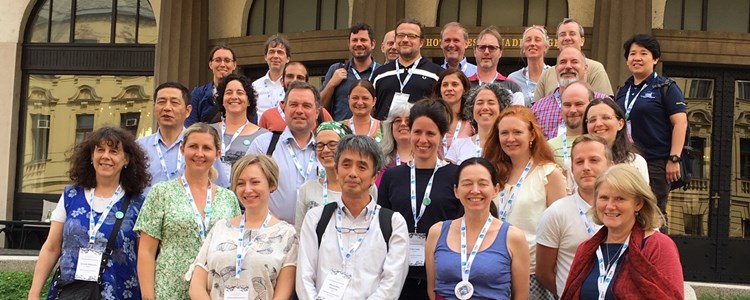Report on Algal Culture Collection Meeting, Zagreb August 2019
Tuesday 15 October
Across the world there are a small number of algal culture collections of a significant size. Together, they offer well documented strains of known provenance (with associated products and information) to the phycological community: reference strains for taxonomy, cultures for teaching and training, starter cultures for marine hatcheries, test strains for biotechnology and much more. The collections are widely dispersed across the planet but face common issues so, once in a while, it’s highly beneficial for them to meet to explore problems and plan joint solutions.
Previous meetings were held in 1998 (USA), 2002 (Germany) and in 2008 (UK), so curators, Maike Lorenz from the SAG Collection (Sammlung für Algenkulturen) in Germany and Christine Campbell from CCAP (Culture Collection of Algae and Protozoa) in the UK, decided it would be timely to organise a meeting satellite to the 7th European Phycological Congress in Zagreb, Croatia in August 2019. The Croatian EPC7 organisers were exceedingly co-operative and so planning went ahead.
On a very warm Wednesday 28th August 2019 at the Esplanade Hotel in Zagreb, 40 algal culture collection folk from USA, Canada, Japan, Australia, China, Malaysia, Norway, France, Belgium, Germany, Italy, Czech Republic, Poland, Algeria, Israel, Russia got together and discussed common challenges. These included talks on: how we can sustain collection’s funding in the decades ahead; new applications like seaweed bio-banking and widening the biodiversity to included such as aquatic viruses; maintenance and cryopreservation methods; Genome sequencing projects; Collections as an educational resource; the Nagoya Protocol and Quality Assurance.
We ensured there was plenty social time for discussion and getting to know one another. By the end of the day all had bonded and were planning future meeting locations.
It is hoped that in the coming months related articles will be published in the new Applied Phycology* journal, sister to the BPS’ European Journal of Phycology, and we thank managing Editors, Juliet Brodie and Christine Maggs for supporting this and joining our meeting.
Both SAG and CCAP provided some financial support, but the meeting could not have gone ahead without grant funding from both the British Phycological Society and Algae-UK for which we are very grateful. Funds provided catering and will also cover some publications costs for the Applied Phycology articles.